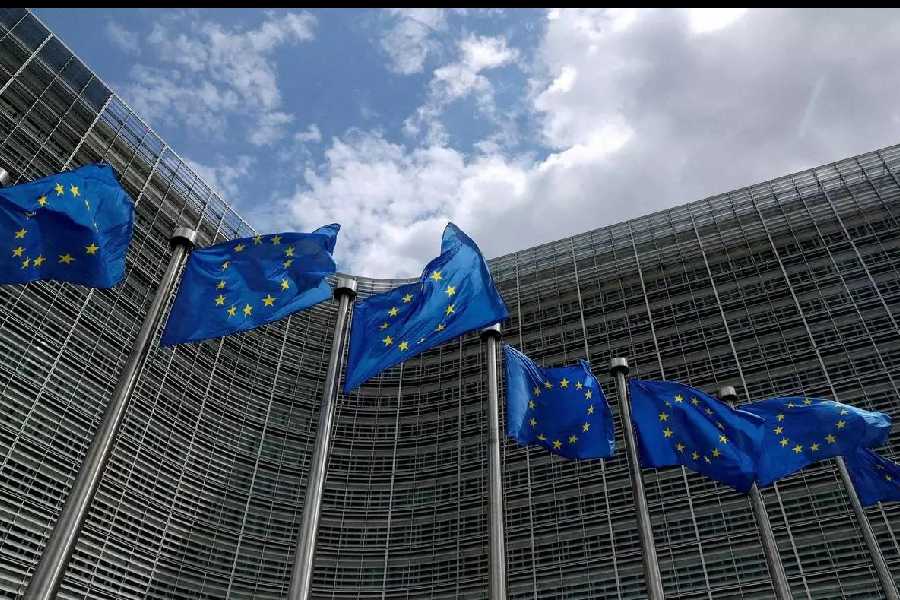Six tech giants — mostly American — have been named by European Union as “gatekeepers” under Digital Markets Act. The list features Alphabet, Amazon, Apple, ByteDance, Meta and Microsoft. The measure is being taken to make the tech companies fall in line with pro-competition rules.
What is Digital Markets Act?
The DMA was approved in July 2022 and the act has been designed to control the reach of large tech corporations such as Apple, Amazon, Google and Meta. The idea is to change how they integrate digital services and handle customer data. The act is supposed to give more rights to customers as to what software on devices can be allowed to be uninstalled, greater control over personal data, better advertising transparency and curtail restrictive app store requirements for developers.
What does it mean for beyond Europe?
Nothing at the moment. But next week, Apple will launch its next iPhone series and this time, it is expected to come with USB-C charging and not Lightning port because of EU regulations. Similarly, the EU model of DMA may set a template for the world to follow and the future of Big Tech could be under scrutiny globally. Companies will not be able to afford a service to run in a certain way in Europe and differently for the rest of the world.
What are ‘gatekeepers’?
DMA wants to tackle Big Tech companies or “gatekeepers” that offer “core platform services”. These are companies with a market capitalization of at least €75 billion or sales in Europe of over €7.5 billion, at least 45 million monthly users in the EU.
What are the services from Big Tech that come under Digital Markets Act?
The Commission says 22 core platform services operated by the six gatekeepers have been designated under the Digital Markets Act (DMA). Here’s a rundown. There are four social networks on the list — TikTok, Facebook, Instagram and LinkedIn. There are six “intermediation” services — Google Maps, Google Play, Google Shopping, Amazon Marketplace, iOS App Store and Meta Marketplace. There are three ADS or ads delivery systems — Google, Amazon and Meta. Two browsers – Chrome and Safari. Three operating systems — Google Android, iOS, Windows PC OS. Two N-IICS or Number-Independent Interpersonal Communication Service — WhatsApp, Facebook Messenger. One search engine — Google. One video sharing platform — YouTube.
What are the omissions?
Seven tech giants were expected to be affected — Alphabet/Google, Apple, Amazon, ByteDance/TikTok, Meta/Facebook, Microsoft and Samsung but Samsung isn’t on the latest official list. TikTok’s parent ByteDance is the only non-US tech giant listed. Also not on the list as core platform services is Google’s web-based email service, Gmail. Also not on the list is Apple’s iMessage.
How have tech companies responded?
Apple is concerned about privacy and security risks resulting from Digital Markets Act. “Our focus will be on how we mitigate these impacts and continue to deliver the very best products and services to our European customers,” Apple said in a statement. Microsoft said it accepted its designation as gatekeeper.
Google’s Oliver Bethell (director, legal) said the company is reviewing its designation and looking at its implications. “Our aim is to make changes that meet the new requirements while protecting the user experience and providing helpful, innovative and safe products for people in Europe,” Bethell wrote in a blog post.
What if gatekeepers don’t comply?
After a company has been designated ‘gatekeeper’ and doesn’t comply with DMA’s rules, the Commission can impose fines of up to 10 per cent of a company’s total worldwide turnover, or as much as 20 per cent for repeat offenders. It can even go to the extent of forcing a gatekeeper to sell part of its business.
Will it be challenged?
The process is not over. The Financial Times earlier noted that the commission could be challenged, as seen in the case of Amazon and German retailer Zalando challenging the EU over their designations as “very large online platforms” under the Digital Services Act (DSA).











